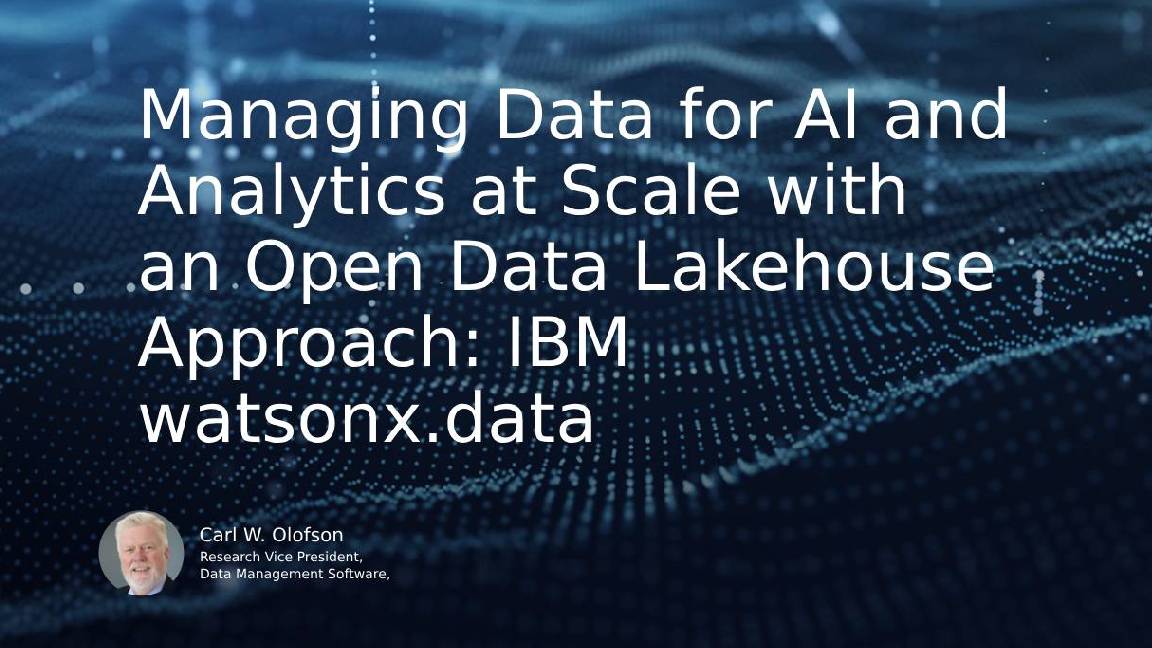UK risks “becoming unmoored” in global AI race unless open source data access is secured
UK AI developers need greater clarity over potential copyright risks in model development


UK lawmakers have been urged to issue guidance on the use of publicly available data sources in AI development, following concerns that open source access is being stifled.
An open letter, signed by organizations including the IP Federation, Wikimedia UK, and OpenUK, has called for clarity on intellectual property (IP) laws to prevent AI developers from infringing current legislation.
The consortium of signatories said that copyright implications related to AI development risks “entirely halting” the advancement of the technology and harming the UK's tech industry.
AI models such as OpenAI’s ChatGPT rely on vast quantities of data for training purposes. Much of this data is publicly available on the web and forms the core learning materials used to train such models.
Over the last year, concerns have been raised over the implications of training models on publicly available data, with both developers and industry stakeholders highlighting the potential for copyright infringement.
The open letter suggests that UK lawmakers must provide greater clarity on the copyright implications of AI training, arguing that public access should be available to lower entry barriers for UK-based developers.
“Any restriction on the use of such data or disproportionate legal requirements will negatively impact on the development of AI, not only inhibiting the development of large-scale AI in the UK, but exacerbating further pre-existing issues caused by unequal access to data,” the letter reads.
Sign up today and you will receive a free copy of our Future Focus 2025 report - the leading guidance on AI, cybersecurity and other IT challenges as per 700+ senior executives
The letter also suggests that stringent copyright requirements imposed on developers will raise costs for new entrants and place UK organizations at a disadvantage compared to global counterparts.
“AI model developers would be unable to train their models on publicly available data in the UK without an explicit license from each rightsholder,” it adds.
“In addition to making the UK uncompetitive in AI markets, it will disproportionately impact small to medium enterprises, knowledge transfer, and hinder open source development of AI.”
RELATED RESOURCE

Eliminate information silos that are difficult to integrate
DOWNLOAD NOW
Signatories have outlined a draft ‘code of practice’ which they believe could lay the foundations for clearer AI-related IP legislation moving forward.
This code would clarify that access to “broad and varied data sets” publicly available online would remain open for analysis without the need for explicit licensing.
The code would also take into account IP legislation in other nations to accommodate for individual guidelines and avoid unnecessary friction for UK developers.
OpenUK CEO Amanda Brock said the current state of UK IP laws raise doubts for developers and could prompt organizations to operate elsewhere.
“Access to data is critical to train AI at scale,” she said. “Without action, the UK is at risk of becoming unmoored from this AI revolution,” she said. “AI leaders will continue to look outside the UK to train their AI models.”

Ross Kelly is ITPro's News & Analysis Editor, responsible for leading the brand's news output and in-depth reporting on the latest stories from across the business technology landscape. Ross was previously a Staff Writer, during which time he developed a keen interest in cyber security, business leadership, and emerging technologies.
He graduated from Edinburgh Napier University in 2016 with a BA (Hons) in Journalism, and joined ITPro in 2022 after four years working in technology conference research.
For news pitches, you can contact Ross at ross.kelly@futurenet.com, or on Twitter and LinkedIn.
-
 Google is scrapping its dark web report feature
Google is scrapping its dark web report featureNews Google said while the dark web report feature offered “general information”, the tool didn’t provide “helpful next steps” for users potentially impacted by a breach.
-
 AI means you're probably going to need bigger developer teams
AI means you're probably going to need bigger developer teamsAnalysis Software developers may be forgiven for worrying about their jobs in 2025, but the end result of AI adoption will probably be larger teams, not an onslaught of job cuts.
